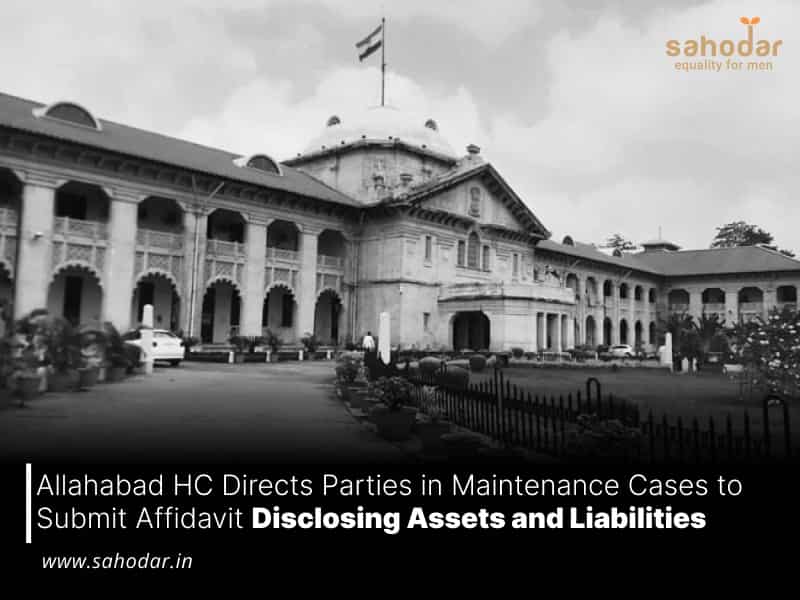The Allahabad High Court emphasized the responsibility of courts handling maintenance cases to instruct the involved parties to submit a detailed affidavit disclosing their financial assets and debts.
In a specific case, the wife had filed a petition under Section 12 of the Protection of Women from Domestic Violence Act, 2005 (D.V. Act), alleging physical and mental abuse by her in-laws due to dowry demands. The trial court ruled in her favor, granting her maintenance.
However, the High Court noted that the trial court overlooked the guidelines established by the Supreme Court in the Rajnesh v. Neha case of 2021 (02) SCC 324, which are directly relevant even to ongoing applications. Consequently, the trial court was obligated to instruct both parties to submit an affidavit disclosing their financial situation.
A Single Bench of Justice Mayank Kumar Jain observed, “It seems appropriate to direct that when an application under Section 125 of Cr.P.C or a complaint under Section 12 of D.V. Act or an application under Section 24 of Hindu Marriage Act is filed before the Court concerned, it should by passing a specific order on the order-sheet direct the applicant to file his/her affidavit of disclosure of assets and liabilities in accordance with the guidelines given by the Hon’ble Supreme Court.”
Advocate Arvind Prabodh Dubey represented the applicant, while G.A. Mohd. Naushad Ahmad Khan appeared on behalf of the opposing party.
The wife contended that due to the mistreatment inflicted by her in-laws, she experienced a miscarriage and endured psychological strain. She also asserted that she lacked any means of financial support for sustenance and was denied residence with her in-laws.
Consequently, the wife filed a police complaint against her husband and in-laws, citing offenses under Section 498A, 323, 504, and 506 of the Indian Penal Code, as well as Sections 3 and 4 of the Dowry Prohibition Act.
The Court observed that the trial court’s decision was solely based on the claims made by both parties, without adequately considering the husband’s income when determining the maintenance amount.
“Certainly, in the absence of affidavit of disclosure of assets and liabilities of the parties, it is not clear that on what basis the learned Magistrate awarded the amount of maintenance to opposite party no. 2 and her daughter,” the court remarked.
As a result, the trial court was instructed to request an affidavit disclosing the assets and liabilities from both parties.
Subsequently, the High Court resolved the application.

